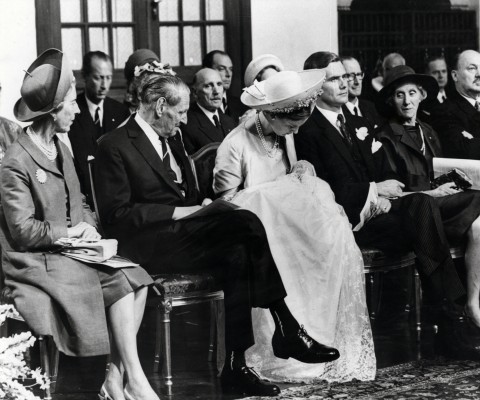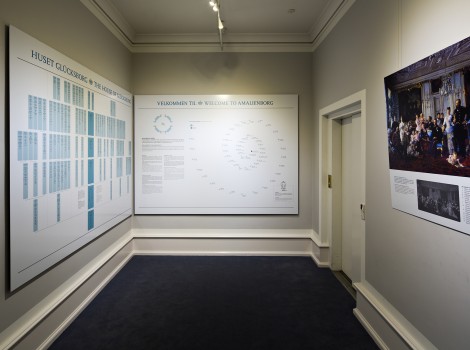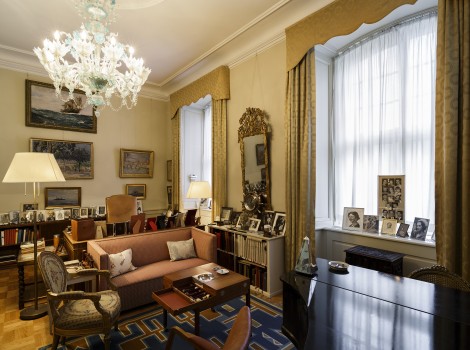1950-1975
Although the period was marked by many international disturbances, 1950-1975 were good years for Denmark. Unemployment figures were low, more people received an education, and the welfare state was truly consolidated. International cooperation became more extensive than previously, amongst other things through the UN, and European cooperation led to the founding of the EC (now the EU) which Denmark became a member of in 1973.
In Frederik IX, Denmark for the first time had a king who refrained entirely from interfering in political decisions. He and Queen Ingrid were an exceedingly popular Royal Couple who happily allowed the public insight into their exemplary family life. They had no sons, but around mid-century the time was ripe for a change in the Act of Succession, which was passed together with a revision to the Constitution in 1953. On the basis of conditional female succession, HM Queen Margrethe II was able to ascend the throne on her father’s death in 1972.
The rise of popular culture left its mark on the period, and the spread of television created entirely new possibilities for communication and entertainment. The youth rebellion of the late 60s forged hitherto unseen bonds of community between young people in the western world.
 Dansk
Dansk
 English
English
 Deutsch
Deutsch



